Zimbabwe, a land rich in natural beauty and cultural heritage, presents a world of opportunities and challenges in the realm of tourism. Despite its potential, the tourism sector faces significant hurdles that need urgent attention and collective action from all stakeholders. This article serves as a call to action, urging tourism businesses, the government, and other stakeholders to join forces in revitalizing and reshaping Zimbabwe’s tourism landscape.
Current State of Zimbabwe Tourism
Zimbabwe’s tourism is endowed with diverse attractions, ranging from the majestic Victoria Falls to the vast wildlife sanctuaries. However, the industry faces several challenges:
- Infrastructure Limitations: The transport and telecommunication infrastructures are underdeveloped. This impacts tourists’ ease of access to various destinations within the country.
- Digital Marketing and Payment Systems: The tourism sector is yet to fully embrace digital marketing strategies. Additionally, the complications in online payments and high charges for using international credit cards deter potential tourists.
- Safety Perceptions: There is a general perception of Zimbabwe as an unsafe destination. This negative image, often stemming from a lack of awareness, hinders the growth of the sector.
- Air Access Issues: Limited flight options and the absence of internal connections to various attractions add to the accessibility problems.
- Visa and Immigration Hurdles: Tourists often face long wait times at airports and inefficient border crossings due to slow network connections and bureaucratic procedures.
The Need for a Collective Strategy
The rejuvenation of Zimbabwe’s tourism sector necessitates a comprehensive and collaborative approach, involving key stakeholders like the Zimbabwe Tourism Authority (ZTA), private sector, and the government. Here are the pivotal strategies that need to be implemented:
- Collaborative Promotion and Targeted Messaging: The ZTA, in partnership with the private sector and government, should amplify its promotional efforts. The focus should be on broadcasting messages that emphasize safety and the unique experiences Zimbabwe offers compared to other SADC (Southern African Development Community) destinations. This would help in reshaping perceptions and highlighting Zimbabwe’s diverse tourism landscape.
- Domestic Air Services Enhancement: Currently, destinations like Victoria Falls and Harare are relatively accessible, but reaching other prime locations such as Mana Pools, Kariba, Hwange, or the Eastern Highlands remains a challenge. In the past, these sites were popular attractions, but now the lack of regular domestic air services hinders their accessibility. Establishing a reliable domestic air service network would be a game-changer, making these destinations more accessible and encouraging tourists to explore and create comprehensive itineraries within Zimbabwe.
- Robust Information Resources: Independent travelers would benefit greatly from improved information resources. The provision of detailed directions, local maps, online resources for planning routes and itineraries, and information on key landmarks and petrol stations would enhance the travel experience. Ensuring travelers have access to accurate and comprehensive information, along with assurances of safe infrastructure, can significantly boost independent tourism.
- Implementing a Regional Visa System: Introducing a regional visa, akin to those in East Africa, could streamline the immigration process. This visa would grant access to multiple countries in Southern Africa (such as Zambia, Zimbabwe, and Botswana), easing entry procedures. Tourists would have their visas pre-approved and only need to be reviewed or stamped upon arrival. This would facilitate smoother movement between countries and enhance the appeal of multi-country itineraries.
- Website Improvement and Digital Marketplace: The development of a digital marketplace and the improvement of the official tourism website are crucial. The website should be a one-stop information source, ranking high on search engines and integrating all essential information about Zimbabwe. Regular updates, especially concerning online visa payments, will streamline the immigration process, reducing bottlenecks at airports and borders.
Implementing these strategies will not only improve the tourism experience in Zimbabwe but also position it as a standalone destination with diverse attractions. It’s time for Zimbabwe to harness its full potential in the tourism sector by adapting to modern needs and trends.
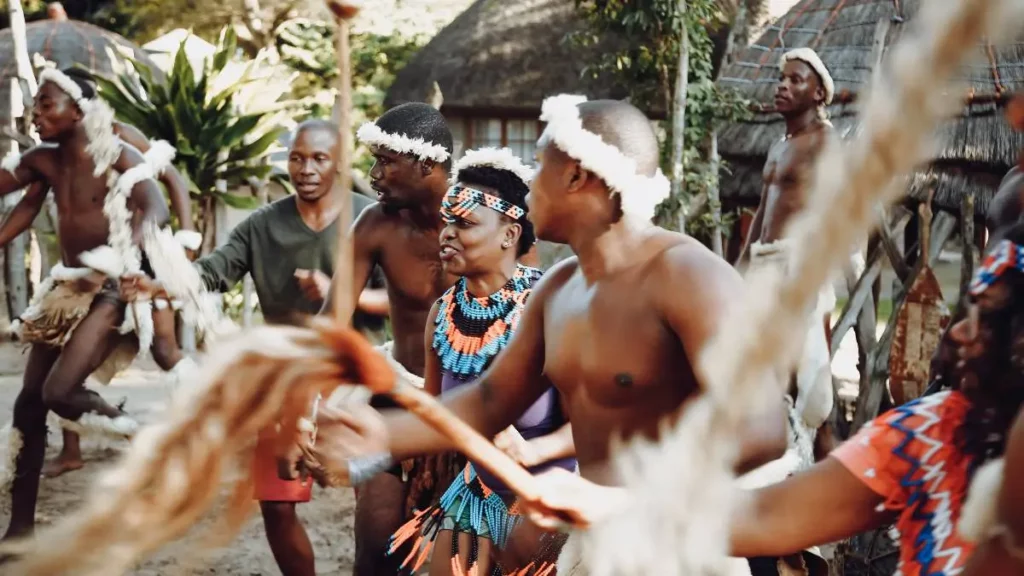
Why Choose Zimbabwe as Your Next Travel Destination?
Zimbabwe, the “Jewel of Africa,” is a destination that captivates with its stunning landscapes, rich cultural tapestry, and diverse wildlife. While it might not be the most obvious choice for many travelers, its allure is undeniable. Here’s why Zimbabwe should be a top contender on your travel bucket list:
1. Untamed Wilderness and Epic Wildlife Encounters
- Jaw-dropping Victoria Falls: Experience the awe-inspiring Victoria Falls, a spectacle of nature listed among the Seven Natural Wonders of the World. Whether you’re an adrenaline seeker indulging in white-water rafting and bungee jumping, or a nature enthusiast enjoying a helicopter flight over the falls, the experience is unforgettable.
- World-class Safaris: Zimbabwe is home to some of the best safari experiences in Africa. Explore national parks like Hwange, Mana Pools, and Matobo Hills to witness the Big Five and an incredible array of wildlife in their natural habitats.
- Untamed Beauty: Beyond safaris, the country’s landscapes range from the granite wonders of Matobo Hills to the serene expanses of Lake Kariba, offering endless opportunities for exploration and adventure.
2. A Journey Through Time and Culture
- Great Zimbabwe Ruins: Delve into the ancient world at the Great Zimbabwe Ruins, a UNESCO World Heritage Site that echoes the grandeur of past civilizations.
- Vibrant Cultures: Zimbabwe’s cultural mosaic is vibrant and diverse. Engage with the Shona and Ndebele people, known for their rich traditions in music, dance, and art.
- Historical Sites: Zimbabwe’s history extends beyond its ruins. Discover the colonial architecture of Harare and the ancient city of Khami.
3. Adventure Awaits Around Every Corner
- White-water Rafting and Bungee Jumping: The Zambezi River below Victoria Falls offers exhilarating white-water rafting, while the Victoria Falls Bridge is perfect for a thrilling bungee jump.
- Boating and Fishing: Lake Kariba invites you to serene boating, kayaking, and fishing experiences, amidst a backdrop of stunning wildlife and landscapes.
4. Beyond the Tourist Trail
- Off-the-beaten-path Experiences: Explore the Chimanimani Mountains, the ancient rock paintings in Matopos, or the Eastern Highlands on horseback for a unique adventure.
- Community-based Tourism: Engage with local communities through stays in locally-owned lodges and support sustainable tourism.
- Volunteer Opportunities: Make a lasting impact by participating in conservation, education, or healthcare projects.
5. Warm Hospitality and Unforgettable Memories
Zimbabweans are renowned for their warmth and hospitality. Engaging with locals, from tour guides to villagers, you’ll be enveloped in a culture rich in warmth and eagerness to share their heritage.
Capitalizing on Regional Tourism Opportunities
The KAZA conservation area, encompassing regions from several Southern African countries, offers a significant opportunity. By developing as a regional hub, Zimbabwe can attract multi-destination travelers. This approach should also consider emerging markets like India and Nigeria, alongside traditional markets in the USA and Europe.
Leveraging Technology in Zimbabwe Tourism
In an era where technology is revolutionizing various sectors, the tourism industry, especially in wildlife-rich countries like Zimbabwe, can significantly benefit from technological advancements. Here’s how technology can be applied effectively:
- Smart Park Management Systems:
- Integrated Management Software: Utilizing software that integrates various aspects of park management, such as ticketing, visitor tracking, and resource management, can streamline operations.
- GIS and Remote Sensing: Geographical Information Systems (GIS) and remote sensing technology can be used for mapping and monitoring park ecosystems, aiding in effective land use and conservation planning.
- Wildlife Conservation Efforts:
- Anti-Poaching Technology: Implementing technologies like drone surveillance and automated sensors can help detect and prevent poaching activities.
- Wildlife Tracking: Use of GPS collars and RFID tags on animals to monitor their movements and behaviors, contributing to research and protection efforts.
- Data Analytics for Conservation: Analyzing data collected from various sources to understand wildlife patterns, habitat usage, and threats, enabling proactive conservation strategies.
- Enhancing Tourist Safety:
- Mobile Applications: Developing apps that provide real-time information on weather conditions, wildlife sightings, and emergency services can enhance the safety of tourists.
- Emergency Response Systems: Implementing advanced emergency response systems, including panic buttons in lodges and GPS tracking for guided tours, to ensure quick response in case of emergencies.
- Virtual Tours and Guides: Offering virtual tours and AI-powered guides can provide tourists with rich, interactive experiences, particularly in areas where physical access may be restricted due to safety concerns.
- Sustainable Tourism Practices:
- Renewable Energy Sources: Harnessing solar and wind energy for powering facilities in parks to reduce the carbon footprint.
- Waste Management Technologies: Implementing innovative waste management solutions to maintain the cleanliness and ecological balance of tourist spots.
- Community Engagement and Education:
- Digital Platforms for Community Involvement: Using social media and online platforms to engage local communities in conservation efforts and spreading awareness.
- E-Learning Tools for Conservation Education: Developing interactive e-learning modules for tourists and local communities to educate them about wildlife conservation and sustainable practices.
By embracing these technological solutions, Zimbabwe can not only enhance its park management and wildlife conservation efforts but also significantly improve the safety and overall experience of tourists. This, in turn, can contribute to a more sustainable and thriving tourism industry.
The Role of Local Communities in Tourism Development
Local communities are the backbone of the tourism industry, especially in regions rich in natural and cultural heritage like Zimbabwe. Their involvement not only enriches the tourism experience but also ensures sustainability and mutual benefit. Here’s how tourism can be a tool for community empowerment and responsible practices:
- Community-Based Tourism Initiatives:
- Direct Participation in Tourism: Encourage local communities to participate directly in tourism by offering homestays, local guides, cultural experiences, and community-run tours.
- Skill Development Programs: Provide training programs in hospitality, language skills, and tour guiding to enhance employability in the tourism sector.
- Economic Empowerment:
- Local Employment Opportunities: Prioritize hiring local residents in various roles within the tourism industry, from park management to hotel staff.
- Support for Local Businesses: Promote and integrate local businesses like handicrafts, food vendors, and cultural performers into the tourism supply chain.
- Ensuring Responsible Tourism Practices:
- Environmental Awareness: Educate both tourists and locals on environmental conservation, reducing waste, and protecting natural habitats.
- Cultural Sensitivity Training: Offer training on cultural sensitivity to tourists and tourism providers to foster respect for local traditions and customs.
- Ethical Wildlife Interactions: Ensure that wildlife-based tourism respects animal welfare and does not exploit wildlife for entertainment.
- Profit Sharing Models:
- Community Trusts and Funds: Establish community trusts where a portion of tourism revenue is dedicated to local development projects like schools, healthcare, and infrastructure.
- Transparent Revenue Sharing: Implement transparent mechanisms for revenue sharing from tourism activities, ensuring communities receive fair compensation.
- Sustainable Development and Conservation Partnerships:
- Involvement in Conservation Projects: Engage communities in conservation efforts, providing them with a stake in preserving the natural resources that attract tourists.
- Sustainable Resource Use: Train communities in sustainable practices for resource use, ensuring that tourism does not deplete local resources.
- Promoting Local Arts and Culture:
- Cultural Festivals and Events: Organize and support cultural festivals and events that showcase local traditions and crafts, creating platforms for cultural exchange.
- Marketing and Promotion: Help local artisans and performers to market their products and talents to a wider audience, both online and offline.
Through these strategies, tourism can become a significant force in empowering local communities in Zimbabwe, ensuring that the benefits are widespread and sustainable. Responsible tourism practices not only safeguard cultural and natural heritage but also build stronger, more resilient communities.
Conclusion
Zimbabwe’s tourism sector has immense potential, but realizing this potential requires a concerted effort from all stakeholders. By addressing the current challenges and harnessing the available opportunities, Zimbabwe can re-establish itself as a premier tourism destination in Africa. The time to act is now. Let’s join hands in making Zimbabwe a top choice for travelers worldwide.
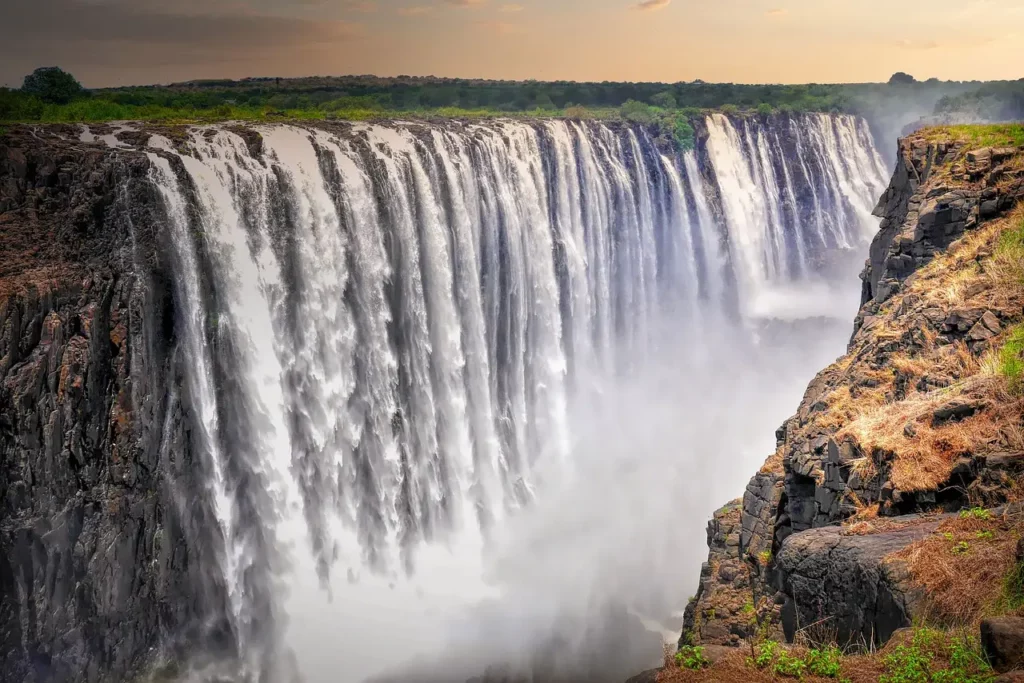
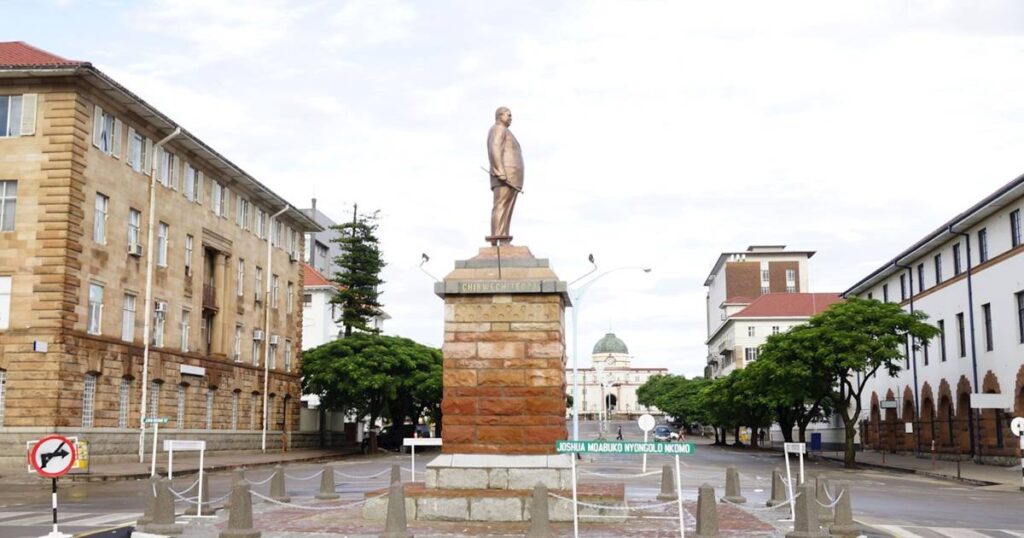
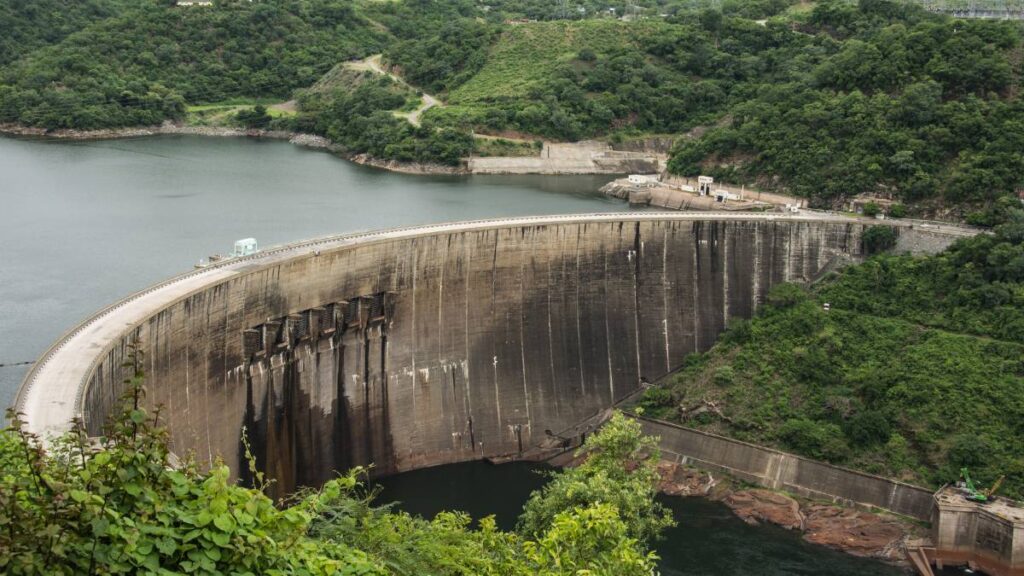
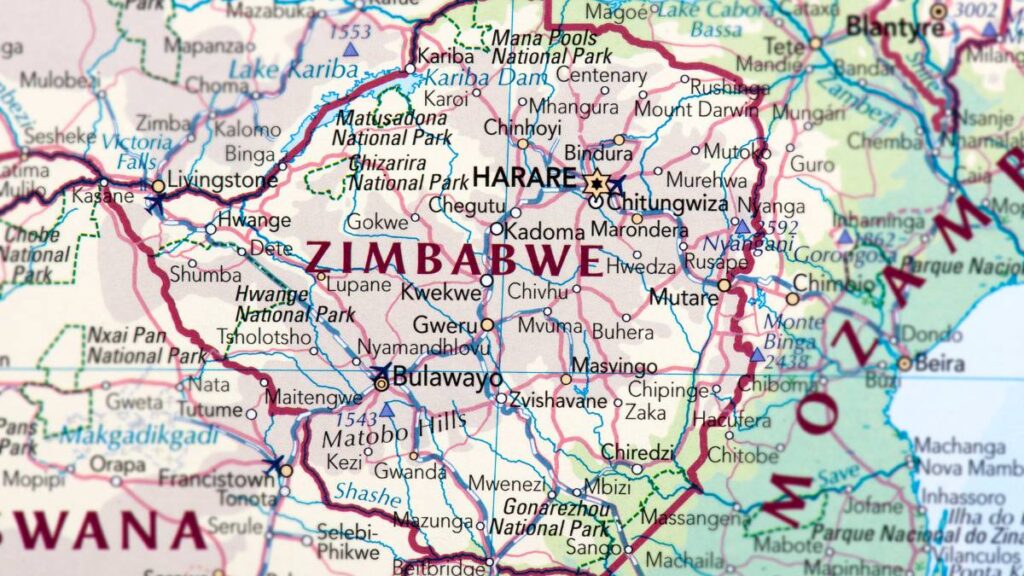
An important resource to mention in the context of this discussion is the Tourism Masterplan Report, which was developed a few years back with funding from the African Development Bank (AfDB). It offers valuable insights and strategies pertinent to advancing Zimbabwe’s tourism sector.
Excellent points made in the article. To add to this, a key factor in boosting tourism in Zimbabwe would be increasing air connectivity. More flights, especially direct ones to key destinations like Victoria Falls, Bulawayo, and other areas, are crucial. Additionally, while many hotels and B&Bs are already utilizing online GDS Reservation Systems and connecting with OTAs like Airbnb, there’s still ample room for growth and improvement in this digital integration to fully tap into the global travel market.